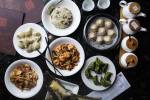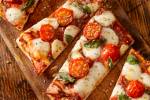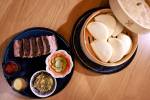Judge not your neighbor’s love for mac n’ Cheetos
If I have one regret in my current life, it’s that I have not yet managed to get my hands on the new Burger King Mac n’ Cheetos sticks. I keep meaning to, but the Burger King near my house has closed down. Given that this is a limited-time item, there is a good chance that I will go to my grave without ever experiencing delicious deep-fried mac and cheese crusted in Cheetos powder. This is a poignant thought indeed.
I’m aware as I write this that some of you are judging me. The bastard offspring of two foodstuffs processed beyond all recognition, bearing the same resemblance to real food as a plastic Lego tree does to a stately elm — what sort of leaden palate and flagrant disregard for one’s arteries could possibly produce such a longing?
It’s all right if you’re judging me, for I must confess that as you are judging me, I am also judging you. And the verdict reads, in its entirety: “Incurable food snob.”
I, myself, love food. I spend a lot of time thinking about food: how to prepare it, how to eat it, how to make it better. I like talking about it to other people who also love food. And yet, I also end up hating most food conversations. Virtually every time the subject comes up at a party, I quickly realize that I’m embedded in a competitive enterprise, the object of which is to prove that you have been to more unknown restaurants, mastered more exotic cuisines, memorized more passages from “On Food and Cooking.”
That’s always struck me as a distraction from the most important thing about food, which is to enjoy it. I don’t mean enjoy the idea of yourself enjoying it, but to actually revel in the food itself, the crackling of your synapses as the flavors and textures play along your tongue.
This sort of enjoyment can be had at a three-star restaurant where a party of eight can easily drop the price of a pretty good car. But it also can be had in the parking lot of a 7-Eleven with a container of nachos in your lap and a summer breeze blowing through the window over the melted processed cheese, nice and hot, and a pile of reasonably crisp tortilla chips. I’m not interested in whether I’m eating the right kind of food. I am interested in whether it is good food, of its kind.
That’s not to say I like all food. Far from it. I do not like: Olive Garden, store-bought pie crust, Hostess cakes, McDonald’s breakfast sandwiches, Domino’s pizza, anything preceded by the words “honey mustard,” Cool Whip, dishes based around condensed or evaporated milk, cake mixes, Marmite, hard little pellets of store-bought cookies, bacon cheeseburgers, fennel, breakfast sausage, tripe, cooked fish, liver or caviar. But that list doesn’t represent a wider commentary on the modern food processing industry, nor on my own moral and culinary development. It’s just an index of things I don’t care for. Other people love them. That doesn’t mean we can’t be friends.
The moralization of what we put in our bodies goes back at least to Deuteronomy, and probably long before. And if God came down and gave your people stone tablets telling you not to eat something, then I’m comfortable saying you shouldn’t eat it. If, however, you do not have a missive from the Almighty, then stop judging what other people put in their mouths. Their preference for Cheez Whiz over cave-aged cheddar has no more moral or intellectual content than the color of their socks.
It seems hard enough to hold our fractured republic together in the face of deep differences in religion, sexual morality and politics. We have enough on our hands without adding arbitrary criteria, such as one’s taste in Friday-night dining or television shows. But in these days of widening class and political divides, we seem astonishingly eager to find new subjects to fight about. Almost no one is content to say, “I don’t like that.” No, it must be, “That is bad.”
We mistake the things we like for the person we are. A recent New Yorker article on the pleasures of Guy Fieri’s “Diners, Drive-ins and Dives” is a masterpiece of social signaling disguised as cultural commentary.
The author oozes bemused disdain for the “gluttonous junk and monstrously inauthentic fusions” featured on the show. He also, in passing, suggests that the restauranteurs and/or the customers are probably racist.
I frequently look up DD&D recommendations when I’m in a new city. The meals I’ve eaten have ranged from “pretty good” to “the best fried chicken I’ve ever had,” which is a much better record than I have achieved by going through TripAdvisor, Yelp or the local food snob blogs.
Should you eat like that every day? Probably not, unless you’re a teenage boy with a hollow leg and no family history of heart disease. On the other hand, unless you’re a billionaire, you probably shouldn’t eat at restaurants with three Michelin stars every day, either.
We imagine that food tells us all sorts of things that it has no right to be speaking about. Miss Manners once remarked that she didn’t like prominent logos on clothes, because she didn’t want her wardrobe conducting an independent social life. I feel the same way about my food: Its job is to keep me nourished and entertained, not to go around talking about me behind my back. There’s no particular reason that your taste in foodstuffs should be correlated with your opinions on abortion rights activism, your education level, your preferences in matters of philosophy or split-level homes. But somehow we have settled on packages of arbitrary tastes which define both us and the groups we choose to belong to.
Just witness the fuss made about Donald Trump’s fondness for Filet-O-Fish sandwiches, which became a telling avatar of everything his critics disliked about him. I mean, I dislike Filet-O-Fish with a stark passion, and I’m not overly fond of Donald Trump either. But if I suddenly learned tomorrow that Trump had sworn off Filet-O-Fish for life, that wouldn’t change my opinion of either of them.
I’m against food snobbery in every form — the snobs who think that there must be something wrong with you if you love McDonald’s hamburgers, and the reverse snobs who think that there must be something wrong with you if you don’t. Food is wonderful. But it should never be that important. Making it into an outward sign of inward grace is gluttony in its broadest sense: elevating food to a status it was never meant to enjoy.
So go ahead, eat those Mac n’ Cheetos sticks. Or that caviar. I’m not judging.
Megan McArdle is a Bloomberg View columnist writing on economics, business and public policy.























